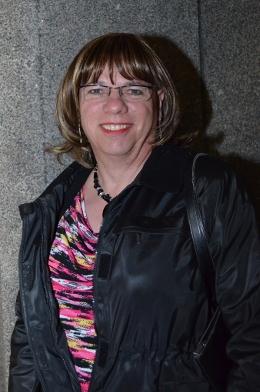Observers in the gallery of the standing committee on justice and human rights shook their heads Nov 27 as they listened to a representative from Real Women of Canada speak out against trans rights.
The third day of hearings on Bill C-279, which would add gender identity to the list of protected minorities under the Canadian Human Rights Act, also saw testimony from the Canadian Human Rights Commission and the Canadian Human Rights Tribunal. Yet it was Diane Watts’s testimony that got the biggest reaction from onlookers.
Watts adopted the frequently referenced stance that if the bill passes, sexual deviants will be able to access women’s washrooms where children are present.
“There’s a situation in Washington where a man who thinks he’s a female has been allowed entrance into a health club where children change. Since the terms gender identity and gender expression are undefined, they apply to anyone who thinks he or she is another sex,” Watts said, “whether or not he/she has had hormonal treatment or surgery.”
Watts also said that taxpayers should not have to pay for sex reassignment surgery and that trans Canadians should not receive special treatment.
“People who think they are transgender should receive compassionate counselling, rather than be encouraged to go against their dissatisfaction with their genetically ingrained gender,” she said. “Their DNA does not change after these treatments.”
The bill’s author, NDP MP Randall Garrison, challenged Watts’s statements and called her brief “offensive.”
“The connection that you attempt to draw to pedophilia . . . anyone who has taken the time to inform themselves with the issues before us would know and should know that there is no connection between the issues we have before us, gender identity and gender expression, and pedophilia,” Garrison said.
Real Women of Canada has refused to meet with trans organizations, declining several requests. When Garrison asked why, Watts said substantial literature on the group’s website answers any questions trans groups — such as Ottawa’s Gender Mosaic, which requested a meeting with Real Women — have.
When Watts ran out of speaking time, Conservative MP Robert Goguen allotted his time to her.
Ottawa trans activist Joanne Law says Watts’s statements have nothing to do with the trans community.
“We’re trying to get human rights. I’m not a pedophile,” she says. “I’m a real human being. I identify as female, and I need access to washrooms, the healthcare system, to courts, the police and all federal jurisdictions.”
Conservative MP Rod Bruinooge said he is concerned about the bill’s ramifications on First Nations communities.
Bruinooge said that since First Nations legal systems are unique, they require a transition period to adjust to any amendment to the Human Rights Code, as was the case for the repeal of section 67 in 2007. A complete exemption to Bill C-279 for First Nations communities is also an option, he said.
Conservative MPs Shelly Glover and Kerry-Lynne Findlay disagreed with Bruinooge.
Findlay, who served a five-year term on the Canadian Human Rights Tribunal, recounted one case where a First Nations trans person came before the tribunal.
“She was very grateful for an opportunity to bring her issues forward before a neutral tribunal that would be applying human rights to her particular issues,” Findlay said. “To think that she would end up excluded, that First Nations people would somehow be excluded from the very protections that we are trying to afford here in this bill . . . I think it would be a grave injustice to First Nations people.”
Bruinooge later changed his mind about an exemption, saying a transition period would suffice. Garrison said he supports a further look at how his bill will affect aboriginal communities.
Peter Zanette, a volunteer at Wabano Centre for Aboriginal Health, says he believes Bruinooge’s request for a transition period is a Conservative tactic to slow the bill’s passage.
“It’s a red herring that [Bruinooge] is bringing up. It is an unnecessary delay tactic,” Zanette says. “Let us get on with it. Trans people are getting killed; let’s protect them.”
The first amendment to the bill is to remove the term “gender expression.” Several MPs, including Conservative MP Kyle Seeback, say they are confused by the term and would like to have it defined.
Garrison concedes that the term “gender expression” is confusing. Garrison said “gender identity” will remain in its place. To attempt to define the term “gender expression” would be an undertaking no legislative body has attempted, Garrison said.
“If we as a group try to write the definition of gender expression, we will be breaking new ground in Canadian law, in international law. We’ll be doing something that no one else has really done,” Garrison said. “We really can’t do that in this committee. Let’s take the term out.”
Amanda Ryan, of Gender Mosaic, wants “gender expression” to remain in the bill.
“Expression is what will be the cause of discrimination and violence against us. Expression is what causes people to notice and take action for or against [trans people],” she says.
Ryan says gender identity is psychological, while gender expression is physical — how a trans person dresses and presents to the world.
“If gender expression is not in the bill, I would like to see the definition for gender identity,” Ryan says. “Hopefully that does still have an encompassing factor for expression.”
The bells of the House of Commons rang before the committee could hear all amendments to the bill, forcing adjournment. The committee will reconvene Dec 4 with a member of the justice department present to conclude the hearings on the bill.


 Why you can trust Xtra
Why you can trust Xtra


